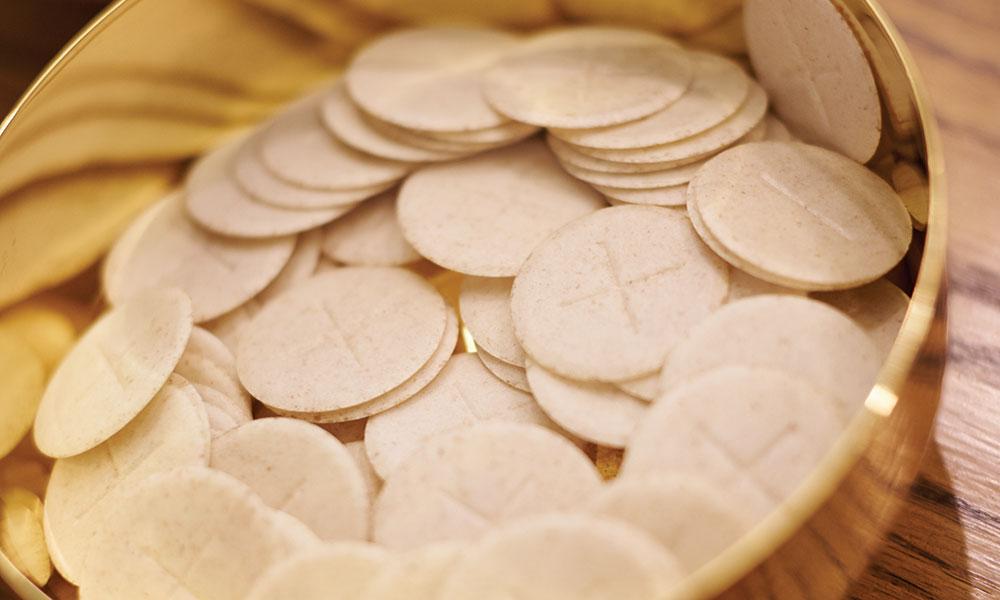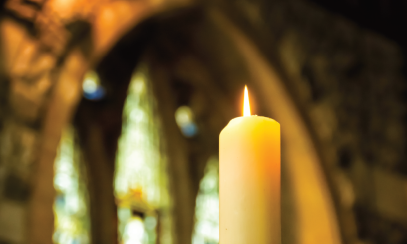
Why can't non-Catholics receive Communion
Q: Dear Father Joe: Why can’t my non-Catholic friends/relatives receive Communion when they join me at Mass? Their churches allow everyone to receive – why don’t we?
A: This is such an important question and one I think I can help with. I want to begin this explanation with an image for you.
On my desk is an old salt shaker with a little bit of dirt in it. It’s been on my desk since late 1999. It’s very special to me, but you would never look at it and see anything special: there are millions of salt shakers out there and this one is not particularly pretty. To top it all off, it’s clearly got dirt in it.
When people see it, they don’t know anything about it except what they see and as a result, well-intentioned people have thrown it out twice and both times I got in a Dumpster to get it out.
Why would I get it out? Because that salt shaker is from the Old Tiger Stadium in Detroit and the dirt inside of it is from home plate. I love the Tigers, and my affection for baseball borders on idolatry at times. In 1999, when the last game there was played, people were allowed out on the field and I got dirt from home plate, put it in the salt shaker, and it’s gone with me to every parish assignment since.
I went to my first Tiger game at the old stadium. I saw Aurelio Lopez and Willie Hernandez pitch, Lou Whitaker hit a home run and Allen Trammell hit one on the very next pitch, all standing next to my dad. I have wonderful memories there.
Most people see an old, ugly salt shaker with dirt in it and treat it accordingly. I see something that is more than that.
Now, when we Catholics gather for Mass, the whole thing culminates in the moment when we enter the Last Supper with Jesus. At that moment, we are not re-creating or re-enacting the Last Supper – we believe we are actually there, present with Jesus and his disciples as he transforms bread into his very flesh and wine into his very blood.
It is an astounding mystery, a mystery of love, a mystery of vulnerability – it is a perfect example of our God making himself tiny and breakable so that he can enter our tiny and breakable bodies.
This understanding of the Eucharist was shared for more than 1,400 years by a vast majority of Christian believers. Then, about 500 years ago, the Protestant Reformation resulted in a fracturing of Christianity, and now a number of Christians believe that the Eucharist is something merely symbolic. As such, they do not at all hold it in reverence and awe like we do.
So, what is the result?
At many funerals and weddings or Masses where I know non-Catholics are present, we’ll make an announcement and/or put something in a handout that gently reminds people that receiving the Eucharist is for Catholics in a state of grace. Still, some well-intentioned people will step forward to receive. Now, I have no way of knowing who is Catholic and who isn’t, and the following things occur:
• People come up chewing gum, giggling and being inappropriate in the line.
• People receive the Eucharist from me and take it back
to their pew, leaving it there or dropping it on the floor – all sorts of things.
They are, for the most part, not at all trying to be disrespectful, but they just see a piece of bread.
You and I look and see God made present. We feel awe and wonder; we act and move with reverence and devotion.
It is utterly heartbreaking to walk through a church after Mass to make sure I find all the hosts left there.
There are many reasons non-Catholics can’t receive Communion, but as I have moved through life and talked to my Protestant borthers and sisters, I’ve learned the explanation I just gave is the primary difference, and it makes sense to both Catholics and Protestants alike, and so I share it with you.
I’d like to close with a story that Dr. Peter Kreeft shared in Crisis Magazine. In it, Dr. Kreeft talks about his friend, John, who brought a Muslim man, ‘Isa, with him to Mass. After explaining to the man what Catholics believe about the Eucharist, the conversation went like this:
John: “I think I know what you mean. You can’t empathize with anyone who believes something so shocking. You don’t see how you could ever get down on your knees before that altar.”
‘Isa: “No, I don’t see how I could ever get up. If I believed that thing that looks like a little round piece of bread was really Allah Himself, I think I would just faint. I would fall at His feet like a dead man.”
May we embrace the awe and wonder of so loving, so powerful and so vulnerable a God.
Enjoy another day in God’s presence.



